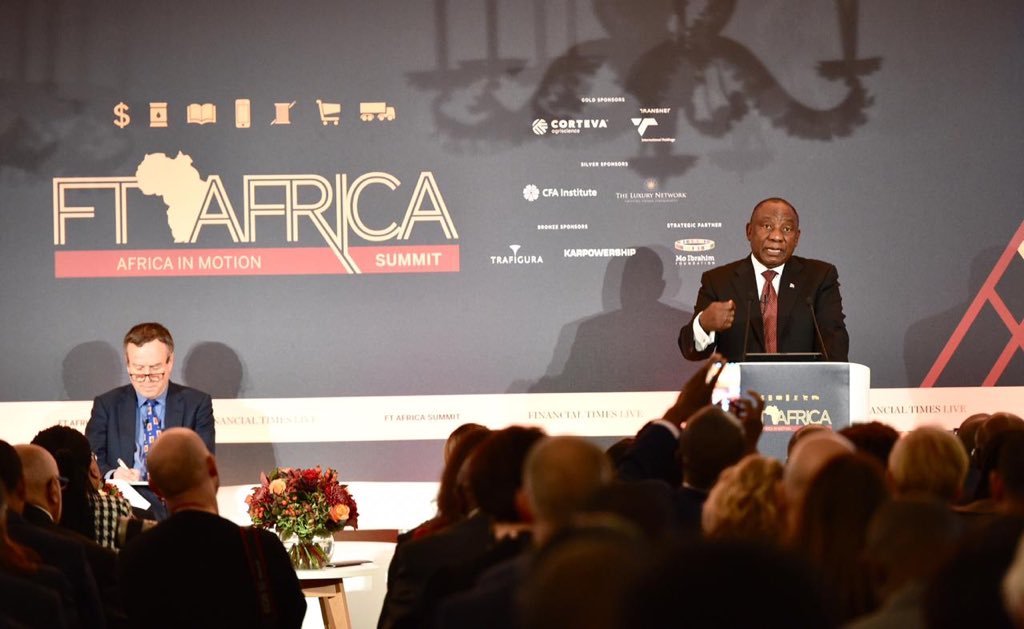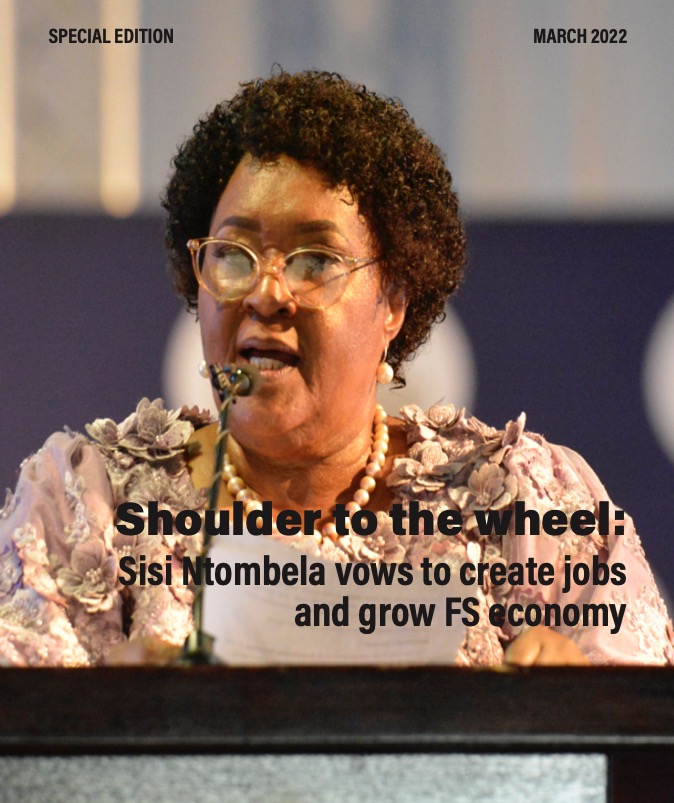Riyaz Patel
It has been proven that investors who have invested in Africa earn handsome returns, President Cyril Ramaphosa told decision-makers, financiers, investors at the FT Africa Summit in London.
Delivering the keynote address at the gathering which included development partners from Africa and across the world, he said the continent is ready for the great leap forward in “displaying its innovative talent and capability and catapulting itself to greater heights of human development.”
Ramaphosa drew a parallel between the Maastricht Treaty and the African Continental Free Trade Area (AfCFTA).
“Just as the signing of the Maastricht Treaty in 1992 represented a new era of European cooperation and integration, the African Continental Free Trade Area is the realisation of the dream of the founders of the Organisation of African Unity 56 years ago.”
AfCFTA brings together 54 nations of some 1.2 billion people into a single market, with a combined GDP of over $3 trillion, Ramaphosa pointed out, adding it will improve access to existing markets and lead to the creation of new ones.
The free flow of goods and services will enable African businesses and entrepreneurs to expand their horizons, and treaty “will unleash the manufacturing and industrial capability of the continent as companies will seek to make products for the burgeoning African market.”

The South African president then outlined the other immediate benefits of AfCFTA, saying it’ll have far-reaching political, social, physical and international effects.
On the political front, Ramaphosa said, AfCFTA will help to consolidate the union among all African states and reduce the potential for conflict because there is no benefit in waging wars with countries that you trade with.
From a social perspective, AfCFTA is likely to result in a more cosmopolitan Africa as the greater movement of people and skills brings more people of diverse backgrounds and nationalities together.
AfCFTA will also have a broader international impact as Africa will be in a position to deal with other trade blocs from a position of greater strength, added Ramaphosa.
He said South Africa will put great emphasis on giving effect to the agreement on the Continental Free Trade Area, when Pretoria assumes chair of the African Union in 2020.
Ramaphosa said the recent peaceful polls in Nigeria, South Africa, Malawi, Mauritania and Tunisia – along with the upcoming elections in Mozambique, Ghana, Cameroon, Botswana, Namibia and Algeria – “aren’t just political milestones, but rather signals of the continent’s growing political stability. “

African states, South Africa’s president emphasized, are enacting and amending legislation to improve business confidence; public institutions are being reformed; and laws around corruption and bribery are being strengthened, to create a more attractive investment climate.
These cumulative reforms have seen five of the ten most improved countries in this year’s World Bank Ease of Doing Business Index from Africa. This should bolster and increase investor confidence, said Ramaphosa.
But he made clear, “Africa wants to deal with the rest of the world on its own terms.”
“It wants to see an end to outside interference, particularly from those countries that continue to fuel conflict in African countries.”
He said the continent cannot develop fully for as long as parts of “Africa remain theatres of war to advance the interests of powers beyond our shores.”
Foreign money that buys the weapons that are used in wars on the African continent should instead be building bridges, ports and rail lines, schools, hospitals and clinics, he said.
Quoting figures from the International Monetary Fund, President Ramaphosa said global foreign direct investment to Africa rose by 11% between 2017 and 2018 at a time when global FDI flows fell by 13%. Of the world’s 10 fastest growing economies, six are in Africa, according to the IMF.
African governments, companies and citizens are embracing innovation and technology to overcome the developmental constraints Africa has long faced, said Ramaphosa pointing to examples from across the continent.
One need only look at the exponential growth of mobile money transactions since M-Pesa entered the East African market over a decade ago, he said
Twenty-one percent of adults in sub-Saharan Africa now have a mobile money account – the highest of any region in the world, while in Ethiopia, drones are being used to deliver medication and even blood supplies to remote areas of the country. Across cities in Nigeria, he noted, solar powered phone charging kiosks have become a familiar sight.
But, he underlined, Africans aren’t just consumers of technology, they are inventing, adapting and customising it for their needs.
Ramaphosa said African governments are committed to create the necessary enabling environment for business to flourish, calling on the investor community to harness the “climate of reform” that is sweeping the continent and take advantage of its momentum.
“There has never been a better time to invest in Africa!”


